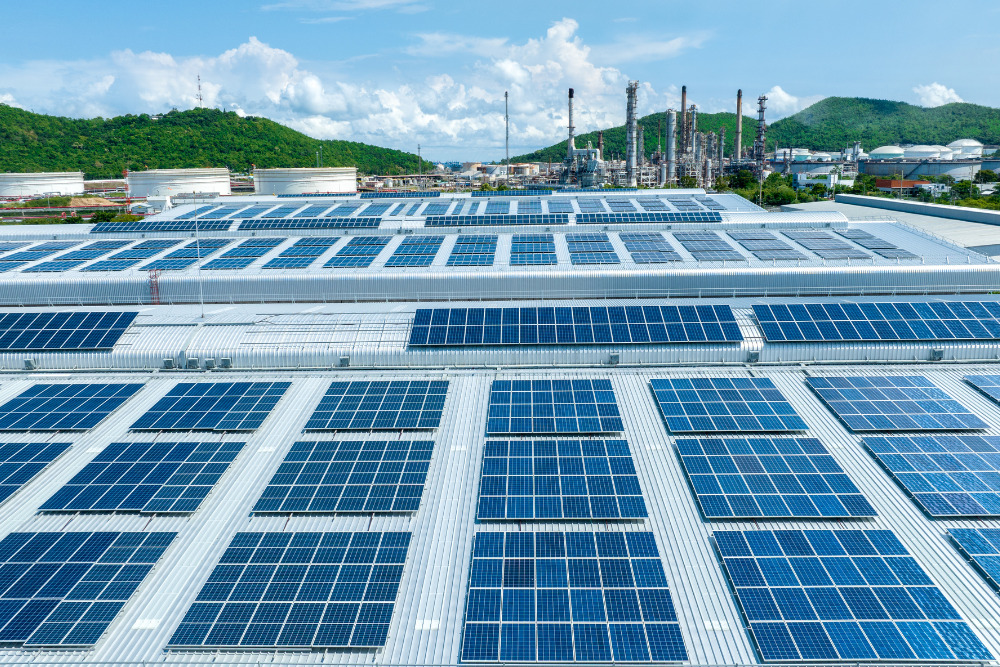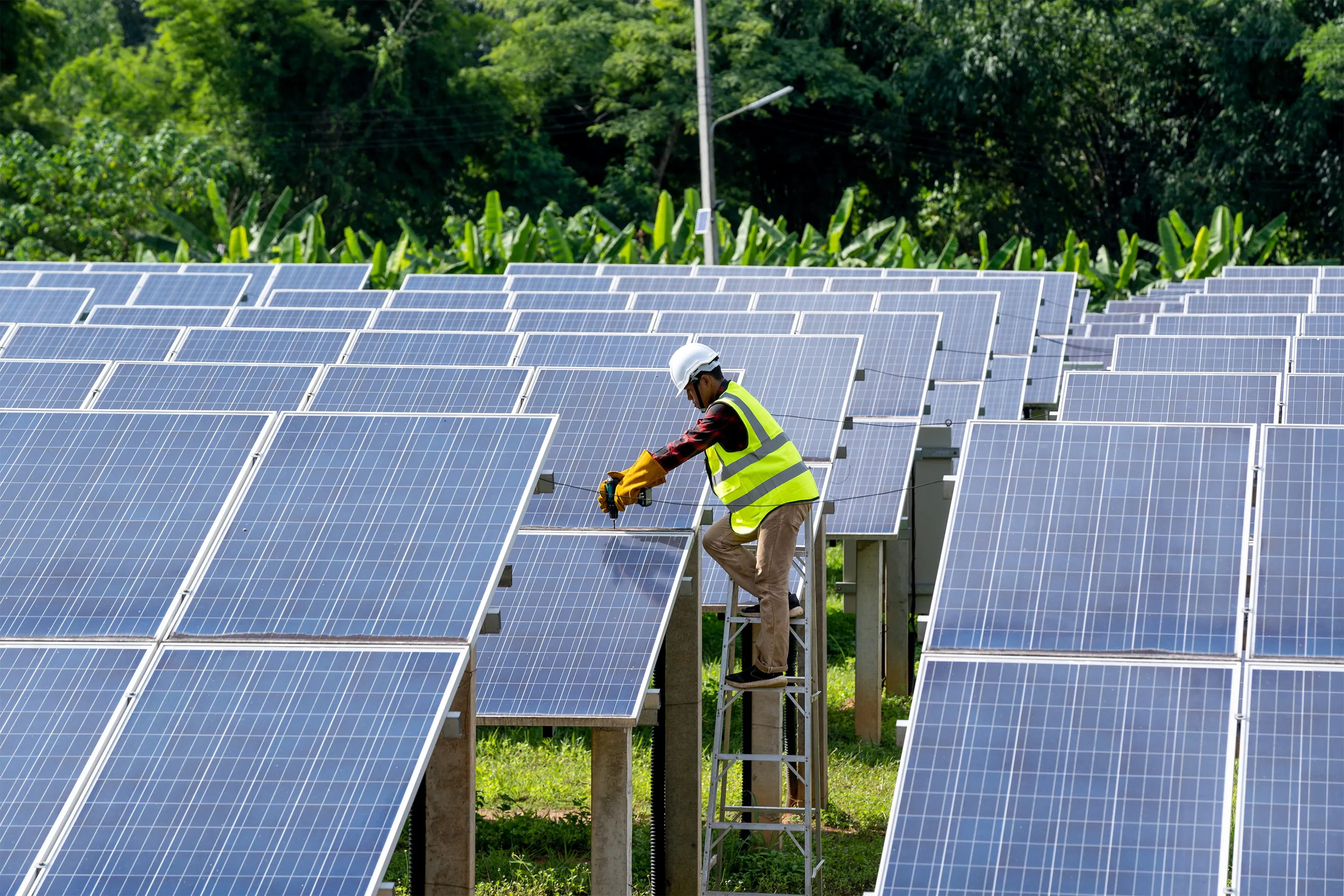Some Known Factual Statements About Solar Companies In Virginia
Some Known Factual Statements About Solar Companies In Virginia
Blog Article
Virginia Solar Power Company Reviews: Lumina Solar Concentrates On Providing Advanced Photovoltaic Solutions For Residences And Services
History and Establishing
Have you ever questioned how a solar panel business springs from a simple trigger of inspiration into a powerhouse of sustainable energy? It frequently starts with a vision-- one fueled by a blend of development, decision, and a pinch of serendipity. The journey of many solar business mirrors the development of the technology itself: from large, ineffective panels more info to streamlined, high-efficiency marvels utilizing the sun's bounty.
The Early Days
In the late 20th century, when solar energy was still a specific niche principle, leaders planted seeds for what would end up being a worldwide movement. Think of a small workshop filled with curious engineers, relentlessly explore photovoltaic cells. Their enthusiasm was palpable, typically driven by a desire to fight environment modification and decrease dependence on nonrenewable fuel sources.
One such anecdote has to do with a founder who, influenced by an outdoor camping journey, realized that even in remote areas, the sun might power important gadgets. This easy observation sparked a business's objective to equalize access to tidy energy.
Establishing Concepts

- Innovation: Constantly pressing the borders of solar technology to enhance efficiency and resilience.
- Sustainability: Committing to eco-friendly production and reducing carbon footprints.
- Ease of access: Making eco-friendly energy options economical and useful for daily users.
Turning points in Development
| Year | Secret Occasion |
|---|---|
| 1985 | Company founded in a small garage, concentrating on research and advancement. |
| 1995 | Very first business solar panel item launched, getting local attention. |
| 2005 | Broadened to global markets, embracing worldwide renewable resource objectives. |
| 2015 | Introduced innovative photovoltaic panel innovation with enhanced energy conversion. |
Isn't it interesting how these incremental steps, typically neglected, form the energy landscape today? The solar panel company story is not practically technology; it's about a relentless quest for a brighter, cleaner future.

Developments in Photovoltaic Panel Technologies
Ever seen how some photovoltaic panels shine brighter and last longer? It's not magic; it's the science of photovoltaic performance. Modern photovoltaic panel companies invest greatly in innovations like bifacial cells, which catch sunshine from both sides, boosting energy harvest without expanding roofing area. Have you ever wondered why some panels carry out better on cloudy days? That is because of advances in thin-film solar technology, which grows under diffused light conditions.
Item Variations Customized to Distinct Requirements
One size never ever fits all. Solar panel companies now use:
- Monocrystalline panels for optimum performance and smooth looks, perfect for space-constrained rooftops.
- Polycrystalline panels, which offer an affordable option without compromising excessive output.
- Building-integrated photovoltaics (BIPV), combining solar tech perfectly into architectural elements like windows and facades.
Choosing the ideal product isn't almost upfront expense; it has to do with matching your environment, energy goals, and long-term savings. For example, homes shaded by trees need panels that excel in low-light circumstances, something many ignore till energy bills climb all of a sudden.
Technical Tips for Optimum Choice
- Evaluate the temperature level coefficient-- lower worths imply panels lose less performance on hot days.
- Look for panels with enhanced anti-reflective coverings to take full advantage of light absorption.
- Think about the panel's warranty not just for defects, however for guaranteed power output over years.
- Don't undervalue the value of the inverter technology coupled with the panels; it can make or break your system's efficiency.
Beyond Panels: Emerging Trends
Imagine photovoltaic panels that change their angle immediately to chase after the sun-- tracking systems are becoming more available, increasing yield significantly. Or solar tiles that blend invisibly into your roofline, transforming your home into a quiet, self-dependent power generator. These developments are improving what a solar panel company provides-- not just items, however integrated energy options.
Market Presence and Global Operations
Ever wonder why some photovoltaic panel business appear to grow up in every corner of the globe while others hardly make a ripple? The difference lies not just in innovation however in mastering the art of browsing varied markets. Broadening worldwide is like planting seeds in various environments-- you need to understand each environment's distinct conditions to thrive.
Take, for example, the detailed dance of logistics and supply chain management. Shipping panels halfway across the world isn't practically distance; it has to do with timing, customizeds, tariffs, and adjusting to local need changes. A company with robust international operations anticipates these variables, making sure panels arrive on schedule without pumping up expenses. This foresight is no little task and often separates market leaders from fans.
Secret Techniques for Expanding Market Existence
- Localized production: Establishing production hubs near target audience lowers shipping delays and import intricacies.
- Strategic partnerships: Collaborating with regional companies speeds up market penetration and builds trust.
- Adaptive item style: Customizing solar panel tech to weather, sun strength, and facilities nuances improves efficiency and acceptance.
What about the human element? Solar panel business running internationally should fix up cultural distinctions and regulative subtleties without forgeting their core mission. For example, what works in a sun-drenched desert may falter in a humid seaside area. Often, the most ingenious solution is simply listening-- taking in regional insights to improve technology and technique.
Professionals frequently recommend a phased rollout rather than a shotgun growth. Why run the risk of overextension when measured growth develops sustainable momentum? Scaling sensibly suggests balancing aspiration with functional durability - Solar Companies in Virginia. After all, in the race for sustainable energy dominance, patience can be as important as speed
Environmental Impact and Sustainability Practices
When solar panels first emerged, numerous presumed they carried zero environmental luggage. The truth is more nuanced. The production of solar batteries includes rare earth metals and energy-intensive procedures, which can leave a substantial carbon footprint before the panels even reach roofs. The true environmental expense depends greatly on the sustainability practices used by the solar panel company throughout the lifecycle of their products.
How often do we pause to consider what takes place to solar panels at the end of their helpful life? Unlike batteries or electronics, solar panels can last 25-30 years, but disposal and recycling paths stay underdeveloped in many regions. A company dedicated to lowering environmental damage will have a robust prepare for recycling photovoltaic products, salvaging valuable silicon, glass, and metals to prevent garbage dump accumulation.
Key Sustainability Techniques
- Using low-impact production strategies that lessen water and energy usage.
- Executing closed-loop systems to recycle production waste back into brand-new panels.
- Taking part in transparent supply chain audits to make sure ethical sourcing of raw products.
- Designing panels for much easier disassembly to aid future recycling efforts.
It's worth keeping in mind that some solar business have actually pioneered innovative methods, such as integrating naturally degradable elements or using less toxic chemicals during fabrication. This not just reduces ecological pressure however likewise sets a precedent for the industry. The question stays: can the solar industry truly pivot towards a circular economy design without compromising performance or cost?
Expert Tips for Assessing Sustainability
- Inquire about the company's dedication to carbon-neutral manufacturing and whether they balance out emissions.
- Examine if they partner with certified recycling facilities committed to solar panel waste.
- Look for transparency reports detailing ecological effects and sustainability objectives.
- Think about the durability and guarantee of panels as an indirect measure of resource efficiency.
In the end, deciding for solar power must indicate more than simply slashing electrical energy costs; it has to do with supporting a future where energy is gathered properly and waste is attentively handled. Solar panel business that embrace this philosophy not only light up homes but also cast a brighter light on sustainable innovation.
Report this page